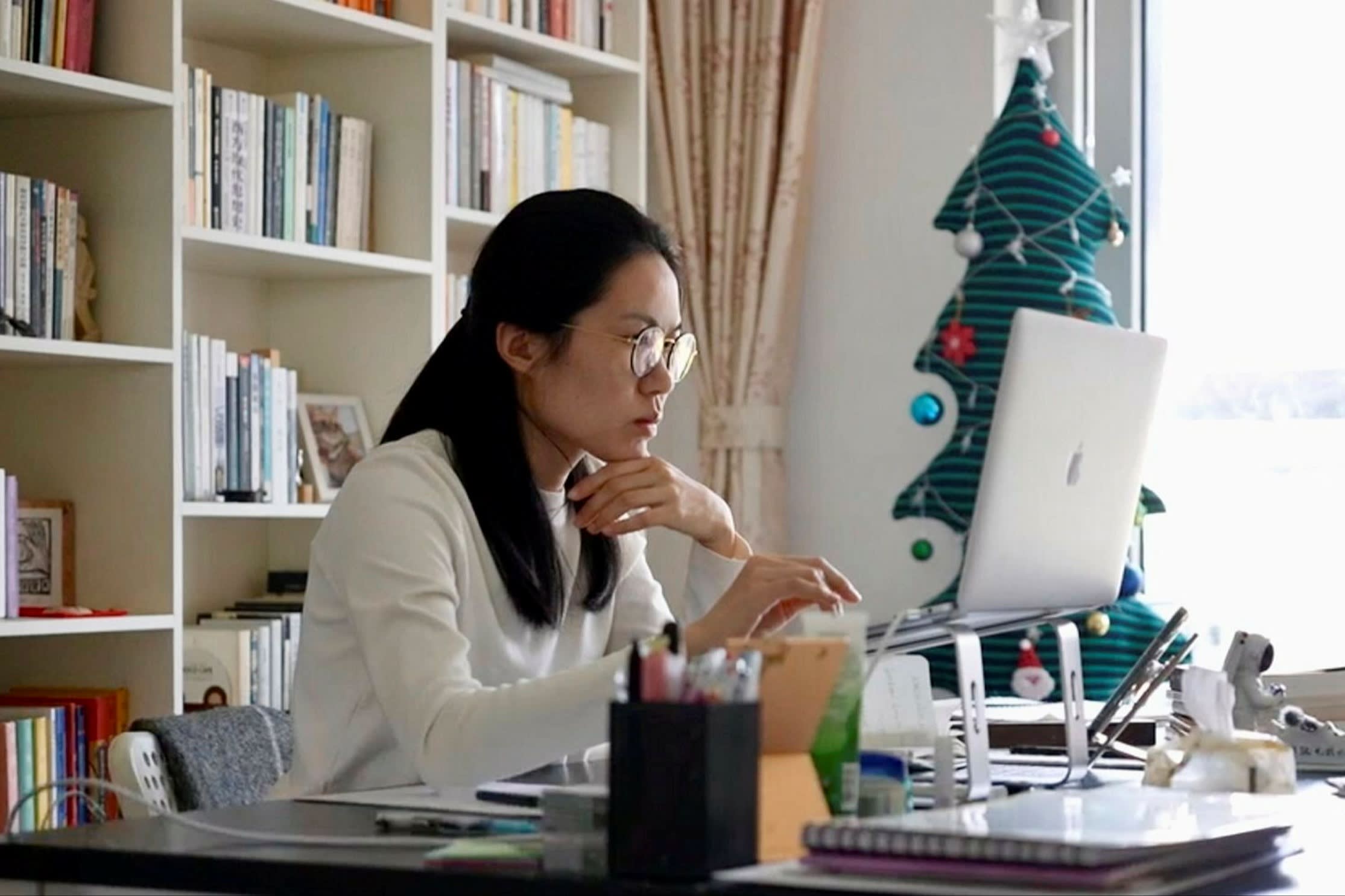From a small 26th-floor office-turned-studio near Shanghai’s People’s Square, Cheng Yanliang leans into a microphone and records the latest episode of Left-Right, a podcast with an audience in the millions.
The 34-year-old former journalist’s twice-weekly show spans topics from wartime espionage in China and the protection of endangered species to Greek historian Herodotus and He-Yin Zhen, a 20th-century Chinese feminist and anarchist.
Cheng is among tens of thousands of podcasters, mostly hobbyists, broadcasting to a Chinese audience expected to total 150mn this year, according to industry forecasts. That is up from fewer than 700,000 just five years ago.
The growth has been fuelled by a surge in grassroots producers broadcasting deeply personal stories and discussing societal issues — all the while steering clear of Beijing’s censors. “Chatting with people is very inspiring for me. So even though it doesn’t make much money, for me personally it is very good,” said Cheng.
While podcasting in the country of 1.4bn people is still relatively niche compared with short videos and gaming, it is becoming big business, too. Tencent Music, a subsidiary of the WeChat owner with about 600mn users, in June announced plans to buy Ximalaya, China’s biggest podcasting and audiobook app, for $2.4bn.
China’s media landscape is characterised by state control. While podcast hosts often discuss vastly different themes from state media, the hosts instinctively understand the state’s red lines.
Censors may monitor content but “the notion of civic or freer space in China is always fluid”, said David Bandurski, director of the China Media Project, a research group that has been monitoring media in the country for 25 years. “The space is always shifting, opening and closing.”
The biggest podcast platforms, includingXimalaya, Apple, Qingting andXiaoyuzhou, offer shows on everything from murder mysteries to deep dives into breakfast and basketball.
Wang Ziyue, a 37-year-old Shanghai-based artist and curator, started recording a show with her close friends this year. Her podcast Zhong Nü Radio — a pun that can be translated as both China Women Radio and Middle-Aged Women Radio — has garnered about 16,000 subscribers over 23 episodes.
Her show, she said, “is like chatting with friends” about their lives, including issues such as depression. A community has formed around the podcast; listeners have their own group on WeChat, China’s main social media platform. She relishes the freedom offered by podcasting.

In a June episode, Wang and Li Jin, a Chinese sociologist, discussed sexual harassment at universities, a topic that in other media would have been taboo, she said. “In an art exhibition, if you mention the words ‘sexual harassment in colleges’, it will not be allowed,” she said.
“The creative space is not that big” in China, she added, noting that obtaining approval for live theatre performances can take months.
While oversight ultimately rests with Beijing, the podcasting platform apps can also influence what is broadcast. The companies screen for sensitive topics and words before approving release, people in the industry said.
According to a 2021 financial disclosure, Ximalaya said it used artificial intelligence technologies such as automatic speech recognition to screen content.
Xiaoyuzhou said in an email that it “will always abide by relevant laws and regulations” related to censorship. But it also noted that amid the “rapid” growth of the past two years, the content in China’s podcasting landscape was “more and more rich and diverse”. Apple and Qingting did not respond to a request for comment.
Authorities, said Left-Right host Cheng, appear to be sensitive to podcast discussions around divination and astrology — topics long discouraged by the authorities who have a distaste for superstition, but are popular among some young Chinese today.
“Strictly speaking, I think I have never done a topic that touches the red line. They just seem to be close to the red line,” he said, adding, however, that “we had a few episodes talking about feng shui that were published but later removed from the platform”.
Still, Bandurski, the Chinese media expert, cautions that any “crowded public square” will always be a cause of anxiety for China’s leaders, even when red lines — such as Tibet and Taiwan — are not crossed.
“The rule you can generally count on with China, where media and information control is at the heart of power preservation, is that popularity and impact are directly proportional to the degree of control,” he said. “The more attention something gets, the more it becomes a problem.”
Additional reporting by Wang Xueqiao in Shanghai


